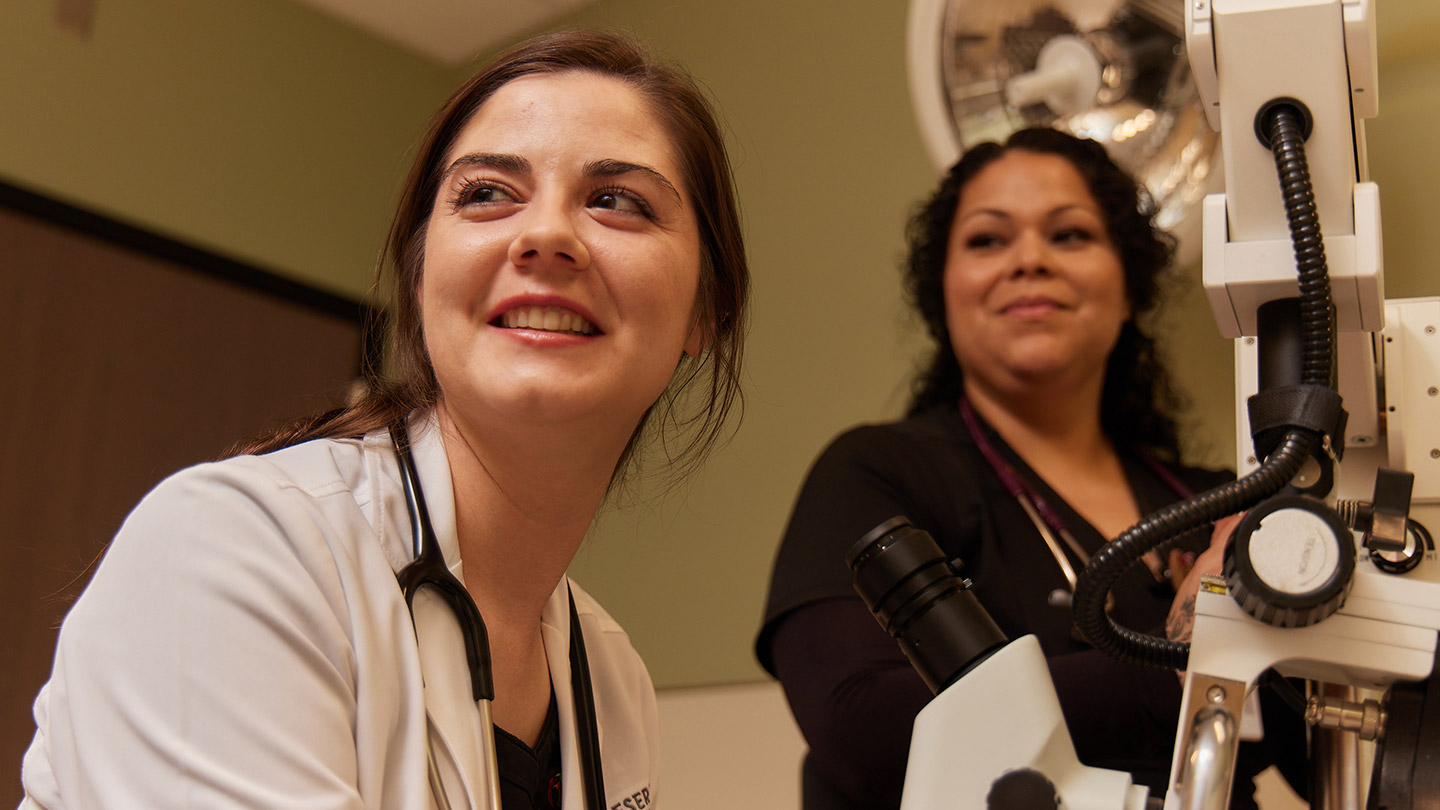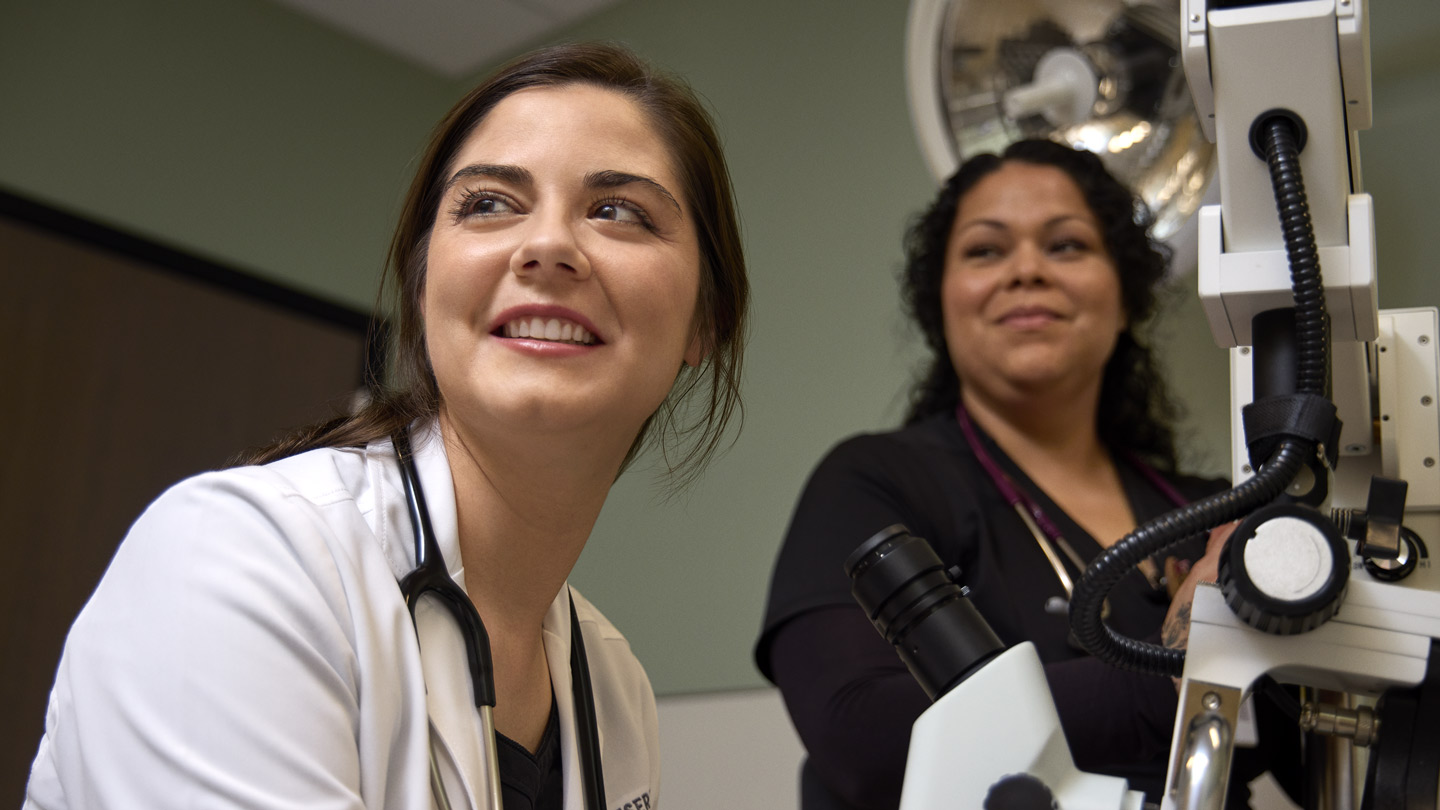“It’s a great day to save lives.”
That’s the message on a hallway poster in the Desert Sage Health Centers’ (DSHC) new state-of-the-art facility in Mountain Home, Idaho.
The center provides one-stop primary healthcare services for Elmore County’s 28,000 residents, many of whom work in agriculture and hold multiple jobs. The new 30,800-square-foot building includes space for family medicine, internal medicine, obstetrics/gynecology, dietician services, dental care, psychology and mental health counseling.
These services can be few and far between in remote communities, creating numerous health disparities for rural residents. According to the CDC, people in rural towns are more likely to die from heart disease, cancer, chronic lower respiratory disease and stroke than people who live in larger cities.
“We know general health outcomes for residents in a rural area are worse than outcomes for health in an urban area,” says Dr. Katherine Gray, a physician at Desert Sage. That makes it even more important to provide wrap-around, cost-effective services. At DSHC, which operates three facilities across the state, people can receive comprehensive primary care, regardless of insurance status or ability to pay.
The new center serves about 30 percent of Elmore County’s residents, says Mary Ferguson, CEO of Desert Sage Health Centers. The increased number of exam rooms, specialty offices and dental chairs at the Mountain Home facility will allow the health center to hire four more providers and go from serving 8,000 patients to over 11,000 patients a year.
‘This is my community, too’
While hospitals and emergency rooms typically provide in-and-outpatient care, DSHC focuses on preventive medicine to help patients manage their symptoms and stay healthy. The center helps people figure out how to afford their medications and find transportation to the facility. It also offers a sliding scale system that is based on a patient’s ability to pay.
“Desert Sage has really changed in the last few years to be a dynamic, spearheading force in the community,” says population health manager Cassandra Garza, who leads a team that helps vulnerable populations navigate the healthcare system.
Many of the Desert Sage staff live in the local area, driving home the center’s commitment to the community. Dr. Gray says she often sees her patients at the grocery store or on a hiking trail.
“Knowing that your doctor lives here helps people know that we’re invested in the community,” she says. “I’m not coming in from an outside city, getting my work done and leaving. This is where I live. This is my community, too.”
DSHC is committed to helping everyone who walks through its doors. It provides paperwork in English and Spanish, and offers drive-through services, which are popular with people who may have trouble leaving their car, like elderly patients or a parent with young children.
“I get to take care of entire families here,” Dr. Gray says. “I work on a team that wants to do as much as possible to keep patients healthy. Not every place is like that. Not every place has that mindset, and that’s really special.”





